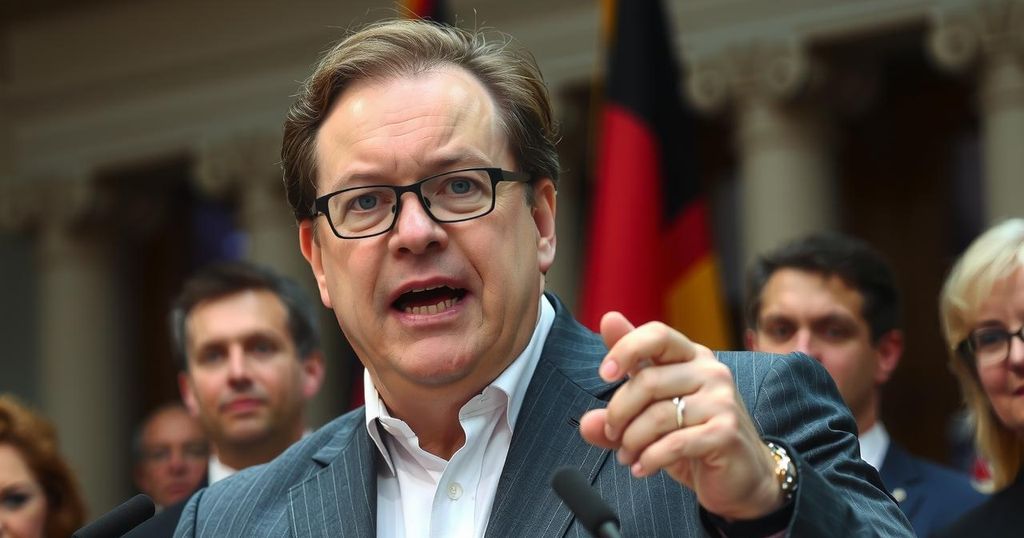Chancellor Scholz Seeks Vote of No Confidence Amid Coalition Collapse

Chancellor Olaf Scholz has initiated a vote of no confidence in response to the collapse of his coalition government, triggered by financial disputes with the Free Democrats. As economic challenges mount, Scholz and his rival Friedrich Merz engage in a heated debate over fiscal strategies and governance. The outcome of this vote may significantly affect Germany’s political landscape ahead of the scheduled elections on February 23.
Chancellor Olaf Scholz of Germany has proactively sought a vote of no confidence from parliament, signaling his desire for early national elections following the dissolution of his coalition government. The collapse was precipitated by the exit of the Free Democrats, leading to an unstable situation for Scholz’s Social Democrats and the Greens amidst burgeoning economic adversity. As the vote approaches, tensions with his conservative opponent, Friedrich Merz, have escalated, with both leaders exchanging sharp critiques regarding their visions for Germany’s future and management of current crises.
In his defense, Chancellor Scholz has highlighted his administration’s response to the economic fallout from Russia’s invasion of Ukraine and has pledged substantial investments in infrastructure if reelected. Conversely, Merz has lambasted Scholz’s spending policies, stating they threaten fiscal stability for future generations. This political standoff has further ignited discussions around Germany’s fiscal cap and raises questions about Scholz’s possible role as a caretaker leader, especially with elections scheduled for February 23.
The backdrop to Chancellor Olaf Scholz’s call for a vote of no confidence is the recent collapse of his governing coalition, primarily due to tensions surrounding financial policies with the Free Democrats. This political turmoil occurs against the backdrop of a deteriorating economic landscape in Germany, exacerbated by external factors such as the conflict in Ukraine. As the economy falters, the upcoming elections create a high-stakes environment for both Scholz and Merz, who represent starkly different fiscal philosophies and governance styles.
The call for a vote of no confidence by Chancellor Olaf Scholz reflects the significant political upheaval in Germany, particularly following the collapse of his coalition. As both Scholz and Merz prepare for the impending vote, their exchanges highlight the contrasting approaches to governance and economic recovery in a time of crisis. The implications of this political maneuvering are profound, particularly as Germany faces upcoming elections amid pressing economic challenges.
Original Source: www.devdiscourse.com








